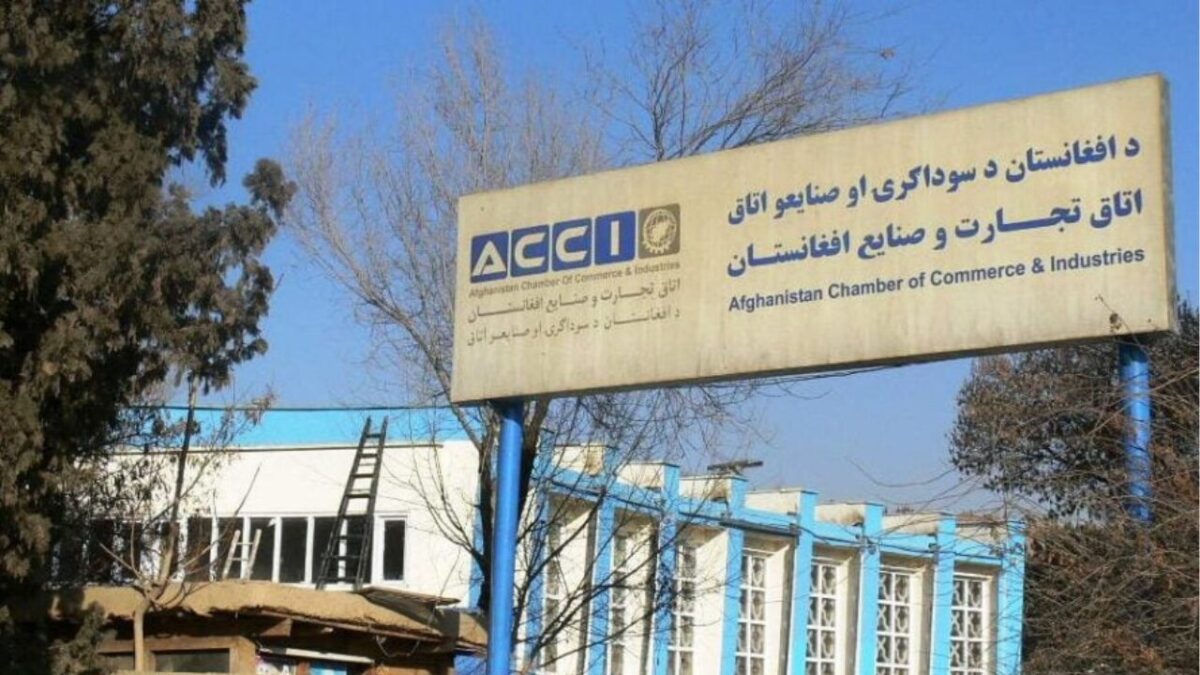Afghanistan, with its strategic geographic location and vast natural and cultural resources, has historically been a crossroads of trade and commerce. Located along the ancient Silk Road, the country served as a bridge for the exchange of goods and cultures between Asia and Europe, playing a crucial role in regional economic integration. Today, however, that legacy is under threat as Afghanistan’s economic and trade infrastructure grapples with challenges, particularly under the Taliban’s rule.
For centuries, Afghanistan has been a vital link in global trade. Its unique position at the intersection of Central Asia, South Asia, and the Middle East made it a hub for commercial activity, with routes traversed by traders carrying everything from silk and spices to gold and gemstones. Despite the devastation of wars and political upheaval, the country has retained its economic potential, thanks to its abundant resources, such as precious minerals and agricultural products, and its geographic significance.
A legacy of organized trade
The concept of organized trade in Afghanistan dates back almost a century. In 1931, the country established the Commercial Arbitration Assembly to address disputes among merchants. Over time, this body evolved into the Afghanistan Chamber of Commerce and Industries (ACCI), which played a critical role in fostering private sector growth and facilitating economic activity.
In 2009, the Afghan government formalized the ACCI as an independent, nonprofit, and apolitical entity through the passage of a landmark law. This law empowered the chamber to act as a bridge between the government and private sector, enabling businesses to access legal protections and state support. For years, the chamber supported trade, resolved commercial disputes, and acted as a platform for Afghan entrepreneurs to engage in international markets.
Specialized chambers were also formed to address the unique needs of various sectors. Among them was the Afghanistan Women’s Chamber of Commerce and Industry, which championed female entrepreneurs, provided training and resources, and helped women establish businesses in fields ranging from agriculture to technology.
These chambers thrived until 2021, fostering economic growth and offering a glimpse of Afghanistan’s potential for self-reliance. However, the Taliban’s return to power upended this progress.
Taliban interference and the decline of independence
Since taking control in 2021, the Taliban have systematically undermined the independence of Afghanistan’s chambers of commerce. One of the first moves was to abolish democratic elections for chamber leadership. Previously, boards were chosen through transparent, monitored elections overseen by the Independent Election Commission. With the commission disbanded, the Taliban appointed leadership to the chambers, stripping them of their autonomy.
The Ministry of Industry and Commerce, under Taliban control, also revoked the chambers’ authority to issue vital trade documents, such as certificates of origin and commercial invoices. This significantly weakened their financial independence and ability to serve businesses.
The Taliban’s takeover of the Women’s Chamber of Commerce in September 2021 was particularly damaging. The ministry dissolved the elected board, replacing it with handpicked appointees. This move silenced one of Afghanistan’s most important platforms for supporting women entrepreneurs, further marginalizing women in the workforce.
In March 2023, Taliban leader Hibatullah Akhundzada issued a decree ordering the dismissal of all elected leaders of Afghanistan’s chambers of commerce. In their place, the Taliban appointed 21 traders, chosen based on personal connections rather than merit or election. This decision effectively transformed the chambers from independent institutions into extensions of the government, akin to a ministry.
The broader implications
The Taliban’s actions have far-reaching consequences, both domestically and internationally. Chambers of commerce have historically played a crucial role in facilitating trade, resolving disputes, and building trust between businesses and governments. By undermining these institutions, the Taliban risk alienating the private sector, deterring foreign investment, and further isolating Afghanistan economically.
Internationally, the Taliban’s interference raises additional concerns. Many countries do not recognize the Taliban government, and traders appointed by the regime may be viewed as de facto government officials. This perception could lead to frozen bank accounts, restricted financial transactions, and diminished opportunities for international cooperation.
The loss of independence in Afghanistan’s chambers also jeopardizes the country’s ability to attract foreign investment. Businesses that once viewed these chambers as impartial and reliable intermediaries may now see them as tools of a regime that lacks international legitimacy.
Lessons from the region
Afghanistan’s neighboring countries offer examples of how independent chambers of commerce can drive economic growth. In Pakistan, the Federation of Pakistan Chambers of Commerce and Industry serves as a bridge between the government and private sector, fostering trade and investment. In Iran, the Chamber of Commerce, Industries, Mines, and Agriculture operates independently, advocating for businesses and improving the business climate.
Similarly, chambers in Central Asian nations like Uzbekistan and Kazakhstan play pivotal roles in attracting foreign investment and facilitating regional trade. These models highlight the importance of autonomy and collaboration in achieving economic development.
Afghanistan’s chambers once aspired to emulate these examples. Before 2021, they established relationships with international organizations, hosted trade fairs, and supported initiatives that brought Afghan goods to global markets. Restoring this vision will require reversing the Taliban’s damaging policies.
Economic and social fallout
The Taliban’s interference in the chambers is part of a broader pattern of economic mismanagement. According to the World Bank, Afghanistan has experienced a 27 percent economic contraction over the past three years. The collapse of businesses, coupled with reduced foreign aid, has plunged millions into poverty.
Unemployment has soared, and many families are struggling to survive. Women, who had begun to make significant economic contributions through entrepreneurship, now face severe restrictions. The closure of the Women’s Chamber of Commerce has left many female entrepreneurs without the support they need to sustain their businesses.
The Taliban’s policies have also exacerbated Afghanistan’s isolation. Sanctions and restrictions on financial transactions have made it difficult for Afghan businesses to access global markets. This isolation threatens to deepen the country’s economic crisis, with dire consequences for its population.
A path forward
Despite the challenges, Afghanistan’s chambers of commerce can still play a vital role in rebuilding the economy—if their independence is restored. For this to happen, the Taliban must cease their interference and allow the chambers to operate as autonomous entities.
Rebuilding trust between the private sector and the government is essential. The chambers must be empowered to elect their own leaders, issue trade documents, and advocate for businesses without political interference.
The international community can also support Afghanistan’s economic recovery by engaging with independent chambers and providing technical assistance. Neighboring countries, in particular, can play a role in fostering regional trade and investment, offering Afghanistan a lifeline in its time of need.
Conclusion
Afghanistan’s chambers of commerce have long been engines of economic growth and platforms for international cooperation. By undermining their independence, the Taliban risk not only stalling Afghanistan’s economic progress but also deepening its isolation from the global community.
Reversing this trend will require bold reforms, both from the Taliban and from the private sector. With the right policies and support, Afghanistan’s chambers can once again become catalysts for prosperity, helping to restore the country’s place in the regional and global economy.
Afsana Rahimi and Manizha Wafiq are economic activists.
The views expressed in this article are those of the authors and do not necessarily reflect the views of Amu.





